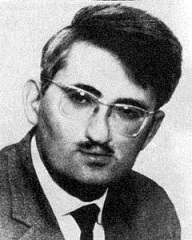Critical Theory
Module Description
In this module we will discuss texts by some key thinkers in the tradition of modern continental European political thought which has come to be called ‘critical theory’, focusing in particular on the themes of reason and power.
Topics we shall address include:reason and the rationalisation of society; the Enlightenment and its critics; ideology and social control; the nature and foundations of sovereignty; and the relation of power to knowledge and subjectivity.
We shall read selections from the work of Weber, Schmitt, Lukács, Adorno and Horkheimer, Foucault, Deleuze, Habermas, Butler, Agamben, and Žižek.
Module Objectives
- To understand some of the central themes in twentieth-century critical theory, especially those concerning reason and power.
- To develop interpretative, analytical, and argumentative abilities, through seminar discussion and a study of key texts.
Preliminary Reading
Students may want to familiarise themselves with some of the course reading. Here is a provisional list of the books and articles that we will be reading either in part or in full:
- Max Weber, ‘The Profession and Vocation of Politics’, Political Writings
- Carl Schmitt, Political Theology
- Georg Lukács, ‘Reification and the Consciousness of the Proletariat’
- Theodor Adorno and Max Horkheimer, Dialectic of Enlightenment
- Jürgen Habermas, The Theory of Communicative Action
- Michael Foucault, Discipline and Punish
- Gilles Deleuze, ‘Postscript on the Societies of Control’
- Judith Butler, The Psychic Life of Power
- Giorgio Agamben, State of Exception
- Slavoj Žižek, ‘The Obscene Knot of Ideology, and How to Untie It’, The Parallax View
Assessment
One essay of 4000 words (100% of total mark).
Every year our students' feedback helps us to improve our modules
“The tutor’s style of teaching is great: open, encouraging and stimulating.”

